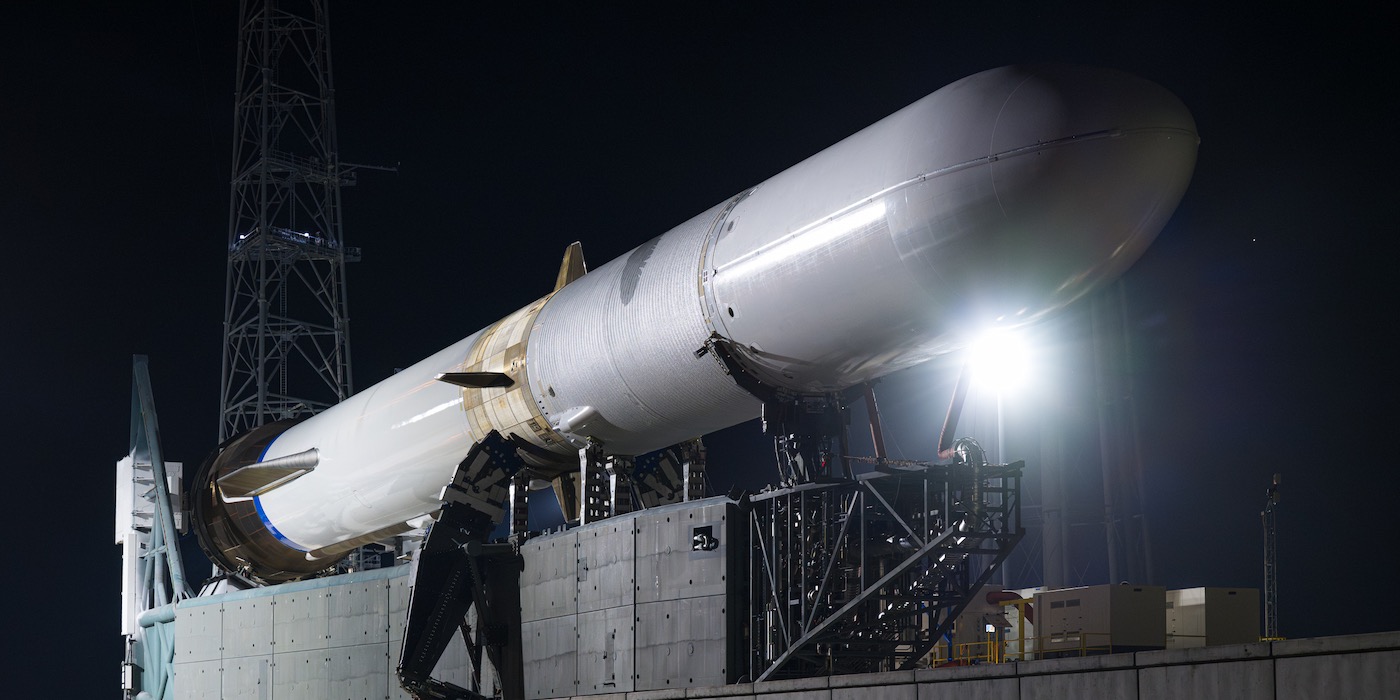
Blue Origin’s second New Glenn mission, NG-2, is finally on the launch pad and ready for its next flight. This could be a pivotal moment for the company as it is full of multiple firsts and features a NASA mission to Mars.
Blue Origin‘s NG-2 mission will be the company’s second New Glenn launch, the first mission with a customer’s payload, and the first interplanetary mission. NG-2 will also reattempt booster recovery, something it attempted and failed at during its first flight.
New Glenn has been in the works for a long time. Blue Origin took its time to make sure its first launch was a success, similar to what we’ve seen from legacy contractors like ULA. This differs from SpaceX‘s mentality of “move fast and break things,” a popular Silicon Valley approach.
With that said, there is little worry from the industry of New Glenn’s second launch being anything other than a success. Of course, there are always concerns with newer rockets, but given how well it performed on its first flight back in January of this year, NG-2 has good odds.
On board New Glen’s second launch will be NASA‘s ESCAPADE mission to Mars. The two spacecraft missions will be a tech demonstrator for low-cost planetary exploration. The two spacecraft are only about 500 kg in mass, a quarter the weight of the Mars Reconnaissance Orbiter, and are built by Rocket Lab, a relative newcomer to spacecraft manufacturing.
NG-2 is set to lift off from LC-36 at Cape Canaveral Space Force Station no earlier than November 9 at 2:45 PM ET. The launch window will remain open until 5:11 PM ET.
Will Blue stick the landing? – Space Explored’s Take
The biggest question with NG-2 is the success of the New Glenn booster after ascent. Once it finishes launching ESCAPADES and the rocket’s second stage out of the bulk of Earth’s atmosphere, the booster will set its target on Jacklyn, a drone ship placed out in the Atlantic Ocean.
Similar to SpaceX, New Glenn plans to reuse its first stage by propulsively landing it on a drone ship downrange.
There is no expectation of success with this objective, as they would only be the second company to even succeed at such a feat if they landed the booster. The booster’s recovery is secondary to its mission, and unlike SpaceX, Blue Origin wouldn’t see any massive delays if it didn’t stick the landing.
Blue Origin does sound pretty confident in the ability to land its booster on the NG-2 mission. Given it has one attempt under its belt and almost a year of time to work on a fix, the chances are high for a success, but I still wouldn’t be betting money on one just yet.
FTC: We use income earning auto affiliate links. More.


Comments